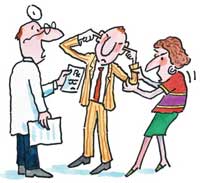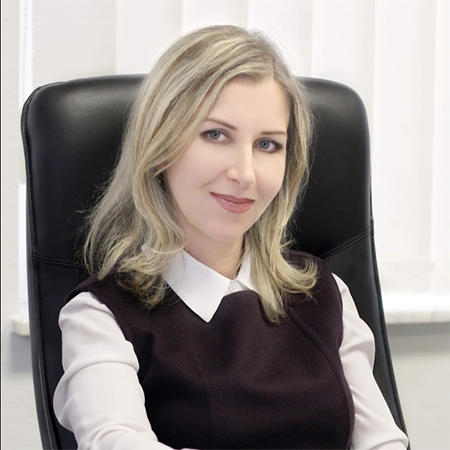Neurorehabilitation » Ischemic stroke » Stroke: General Information, Articles » If the patient does not follow the treatment
If the patient does not follow the treatment
 The patient’s negligence and reluctance to undergo rehabilitation after a stroke is very common and can be manifested in various forms. This complicates the already difficult recovery process in many ways. Below are the most common manifestations. The relatives should carefully consider these typical situations and prevent their occurrence.
The patient’s negligence and reluctance to undergo rehabilitation after a stroke is very common and can be manifested in various forms. This complicates the already difficult recovery process in many ways. Below are the most common manifestations. The relatives should carefully consider these typical situations and prevent their occurrence.
Refusal of medicines
The patient often believes that he/she feels well enough to take medicines that remind him/her of the disease and only irritate the patient. A person often tries to justify his/her point of view by conducting experiments to stop taking prescribed drugs: "if Iget worse, I will continue taking medicines." However, this logic is erroneous because many prescriptions, for example, blood pressure control pills are necessary to prevent a second stroke, but not to relieve pain/improve state of health.If the patient stops taking medicines only for a few days, he/she is likely to suffer almost no effects, but in the long term it is a direct way to a recurrent stroke.
It often happens that the patient begins to doubt the effectiveness of the treatment course due to 3 factors:
- manifestations of side effects after taking drugs,
- lack of rapid improvement,
- reluctance to change the habitual way of life, habits.
Once the patient starts doubting the effectiveness and appropriateness of the prescribed treatment program, he/she becomes stubborn and reluctant to comply with doctor’s orders. It is very common for the patients to be persistentlyunwilling to start a program aimed atquitting smoking, excluding their favorite food/dishes from the diet. In some cases, the patient may be satisfied withthe increased attention and therefore does not want to receive treatment.
Cognitive disorders
The consequences of a stroke can be cognitivedisorders, memory disorders, in which the patient cannot support even a simple daily routine designed by the rehabilitation program. Dementia and memory loss are especially dangerous for patients suffering from diabetes and hypertension. In this case, they should be constantly monitored, which is a heavy burden for others.
Sometimes patients lose an adequate perception of reality and do not understand that they are being treated due to the impacted nervous system. In these cases, the patient is often offended when he/she receives a refusal to fulfill a request contrary to rehabilitation.
Both behavior and attitude towards treatment in a person who has suffered a stroke is largely determined by the nature of brain damages. In case of damage to the right hemisphere of the brain, the person may not realize that he/she is sick. The patient impulsively tries to perform the usual actions, such as walking, taking a shower, but not realizing that his/herbody is not capable of it. On the contrary, if the left hemisphere is damaged, the patient is in a depressed state. They are very worriedabout the loss of independence, which also has a negative effect on recovery, as the patient loses the desire to continue treatment and ceases to perform even those actions that may well beaccomplished.
Lack of knowledge
The patients can often be not fully aware of the mechanism of the onset of stroke and the goals pursued by the rehabilitation program. Also, they may not understand how their lifestyle led to a stroke. Doctors working in many Russian medical institutions do not even try to explain to patients and their relatives what happened to themnot going beyond a provision of a complex medical diagnosis. This approach is not desirable, since in some cases it is because of a misunderstanding of the disease that the patient commits unacceptable actions leading to a repeated stroke.
Therapy becomes the second priority
When recovery after a stroke goes well or the effects are not so significant to severely restrict the habitual way of life, the patient eventually begins to forget about the incident. The doctor’s orderscan be very simple: one just needs to regularly take several pills, but the apparent benefit has the opposite side. The simpler the action is, the easier it is to forget it. Therefore, in some cases the patient who does not experience any symptoms takes medicines irregularly (the person can often rememberabout the prescriptions after several weeks of break), which can lead to unwantedconsequences.
Here you can also read other articles on this topic:
To receive professional advice on rehabilitation after a stroke
Please call us: +49 228 972 723 72
or write an Email here



